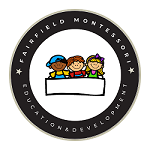Montessori Toddler Program
Designed for children between the ages of 2 and 3, the Montessori Toddler Program offers interactive learning experiences that are hands-on, self-directed, and grounded in practical, real-life situations. The program emphasizes fostering independence, social aptitude, confidence, and establishing a strong academic foundation to prepare toddlers for future educational pursuits.
Learning in the Toddler Community
The Montessori Toddler Program is characterized by dynamic, self-directed learning that engages all five senses. Children are introduced to the five facets of the Montessori Curriculum, which encompass Practical Life, Sensorial, Mathematics, Language and Culture. Proficiency is cultivated through repeated practice and application.
Between the ages of two and three, toddlers undergo sensitive periods for language, order, small objects, toilet training, music, grace and courtesy, and the senses. The layout of the toddler classroom, along with the educational materials it contains, reflects these interests and offers abundant learning opportunities that foster the comprehensive development of children.
Likewise, the daily routine is structured to align with the need of this age group to learn through movement and hands-on experiences, while also embracing the individual needs, interests, and learning styles of each child. Upon completing the Toddler Program, children transition to the Montessori Preschool Program. Here, they navigate through the progression of the Montessori Curriculum, preparing them for their forthcoming transition to formal schooling.
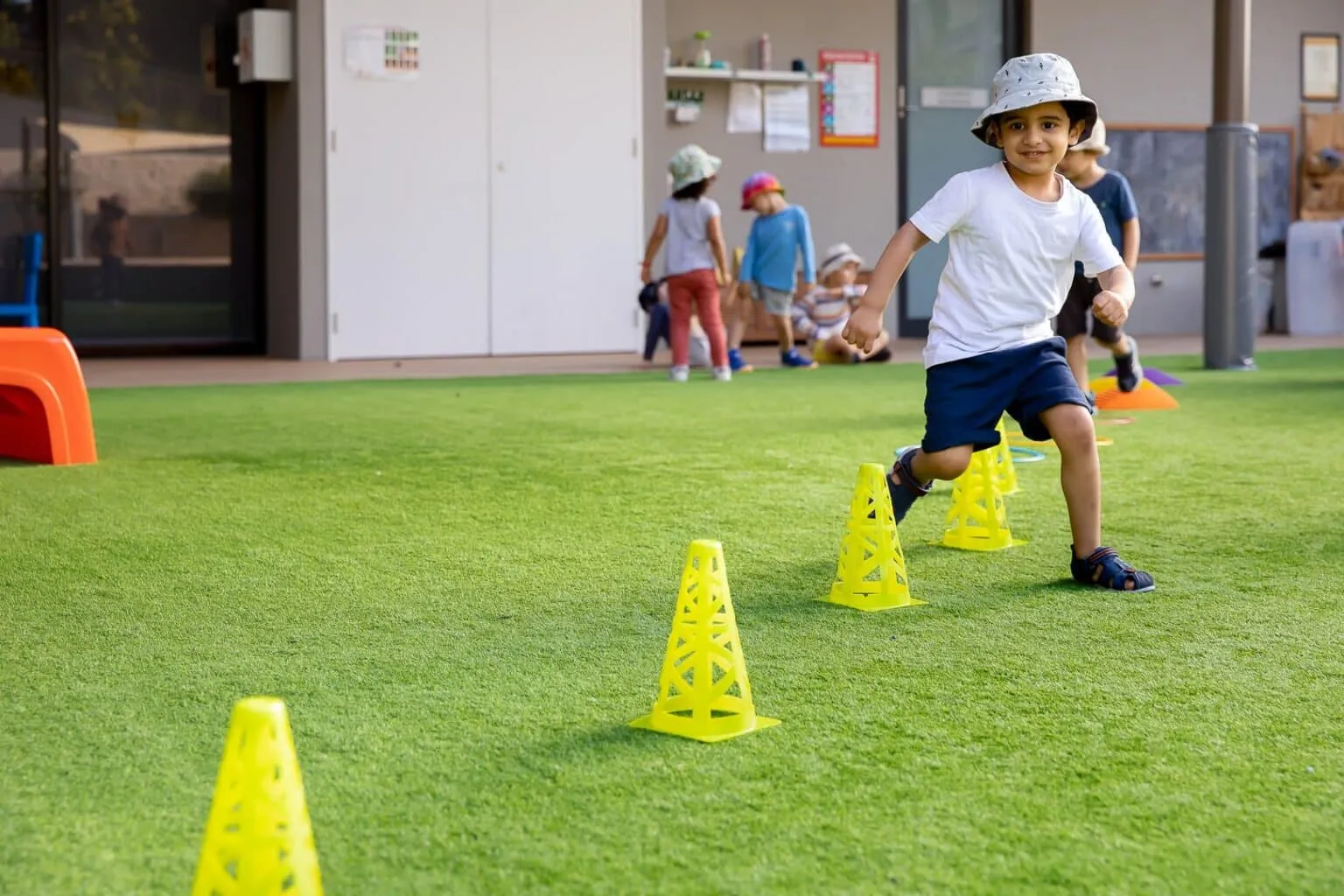
Toddler Learning Goals
- Can identify common objects, body parts, and colors by name
- Recognises numerals and counts by rote
- Speaks in sentences and expresses thoughts and feelings
- Participates in physical activities
- Ability to use the pincer grip when writing and drawing
- Shows self-confidence and interacts well with others
- Distinguishes between sights, smells, tastes and sounds
- Demonstrates problem-solving skills and shows curiosity
Practical Life
Practical life activities focus on care of self, care of others, and care of the environment. In addition to teaching daily life skills, practical life activities promote independence, social skills, grace and courtesy, concentration, and coordination.
Example materials and activities include:
- Spooning
- Pouring
- Gardening and plant care
- Grating
- Window washing
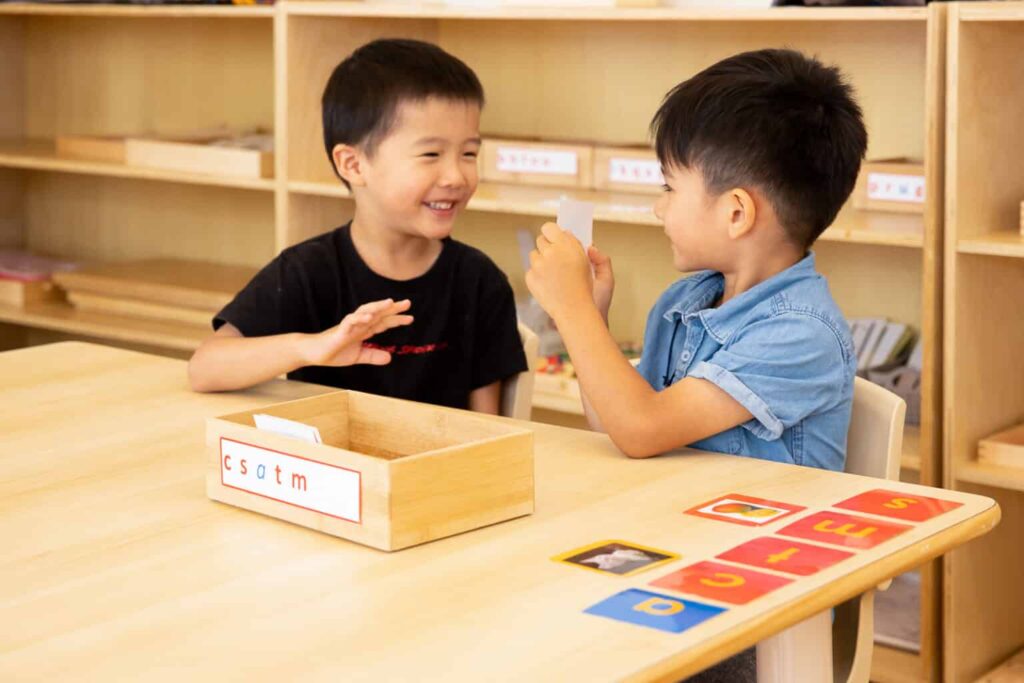
Toddler Curriculum
Practical Life
Practical life activities focus on care of self, care of others, and care of the environment. In addition to teaching daily life skills, practical life activities promote independence, social skills, grace and courtesy, concentration, and coordination.
Example materials and activities include:
- Spooning
- Pouring
- Gardening and plant care
- Grating
- Window washing
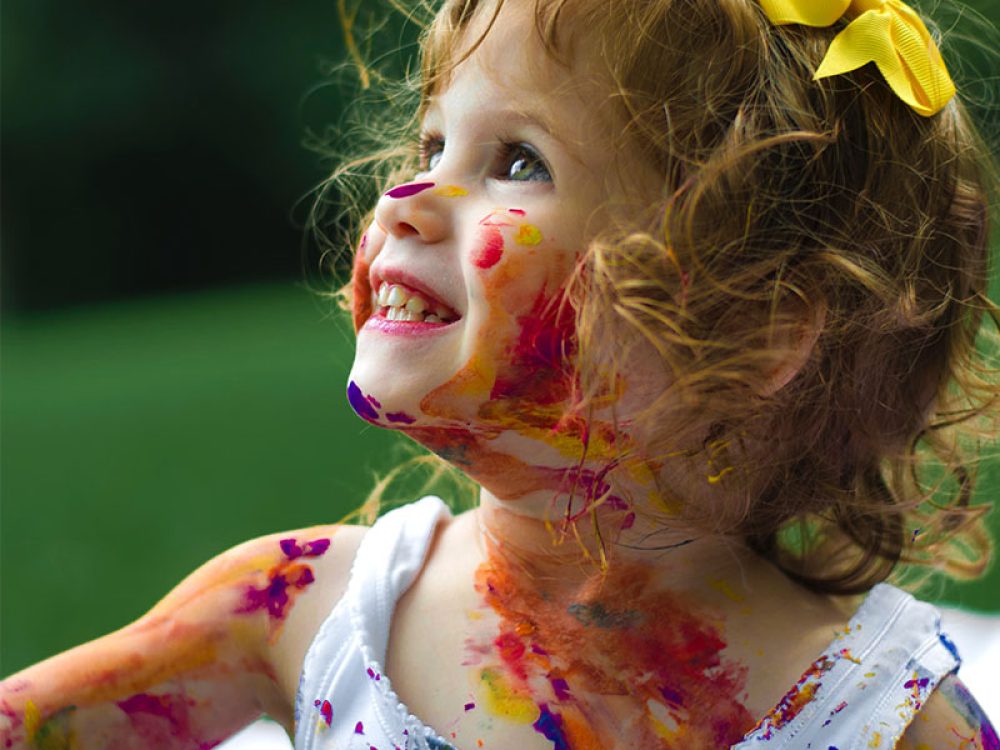
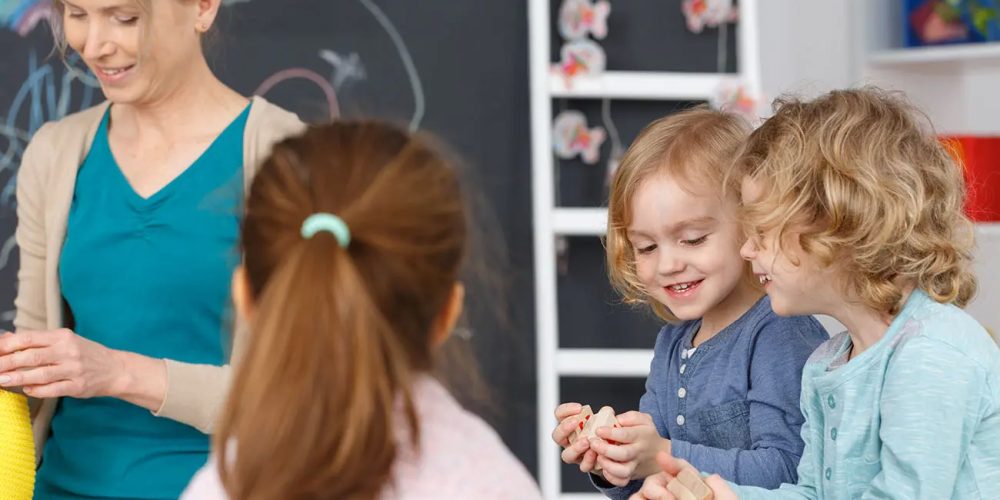
Sensorial
Sensorial activities are designed to help children develop and refine the senses of sight, touch, taste, smell and sound. These skills assist with classifying, sorting and discriminating between objects to interpret their sensory impressions. These skills are necessary foundations for language and mathematics.
Example materials and activities include:
- Pink tower
- Brown stairs
- Red rods
- Geometric tray
- Thermic tablets
Mathematics
Montessori mathematics materials assist children in developing an understanding of abstract mathematical concepts through hands-on experiences. Through the mathematics materials, students learn to identify and quantify numerals, count and sequence numbers, add and subtract, identify patterns, and learn about number systems.
Example materials and activities include:
- Sandpaper numbers
- Spindle box
- Number rods
- Cards and counters
Cut-out numerals and counters
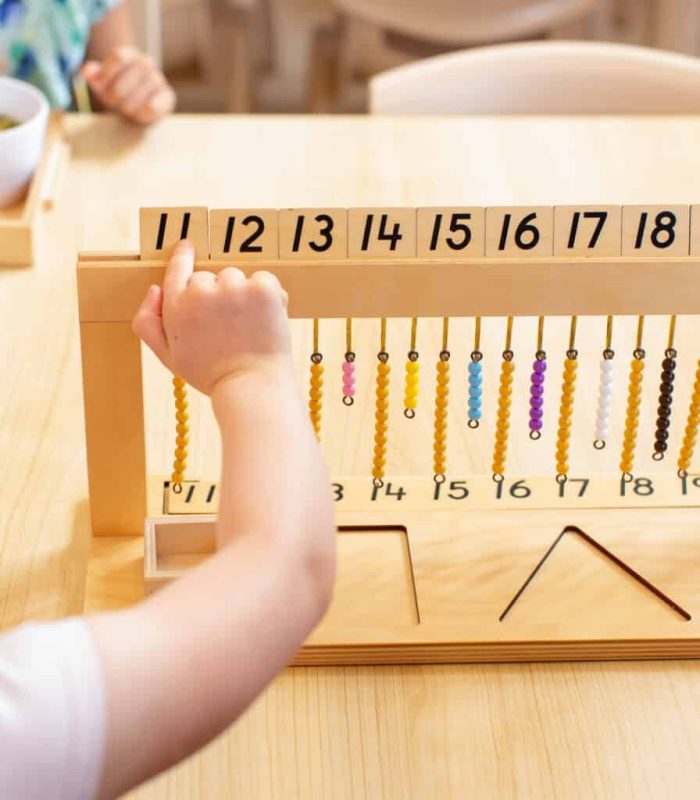
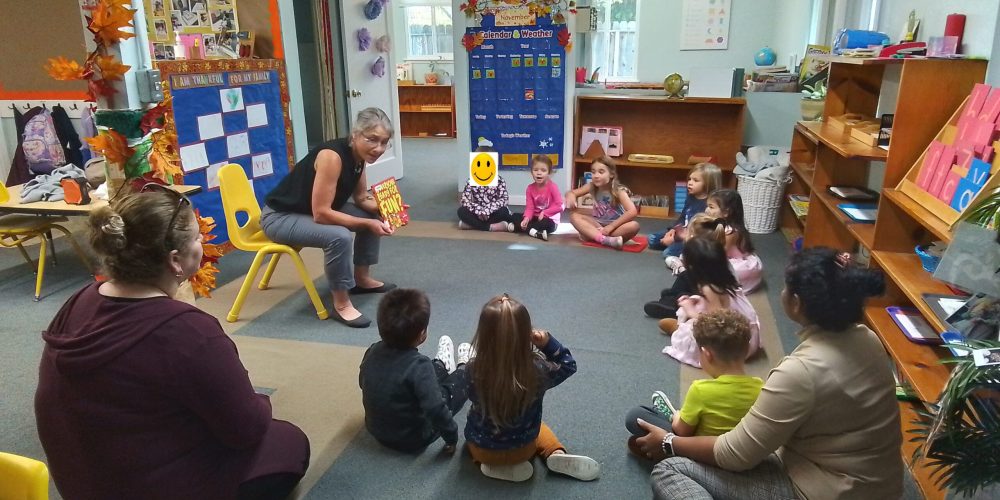
Language
Montessori toddler language materials assist children in learning letter recognition, phonics, simple word structures, vowels and consonants, and the early stages of writing and reading.
Example materials and activities include:
Sandpaper letters
Three part cards
Metal insets
Plain paper cutting strips
Object picture matching
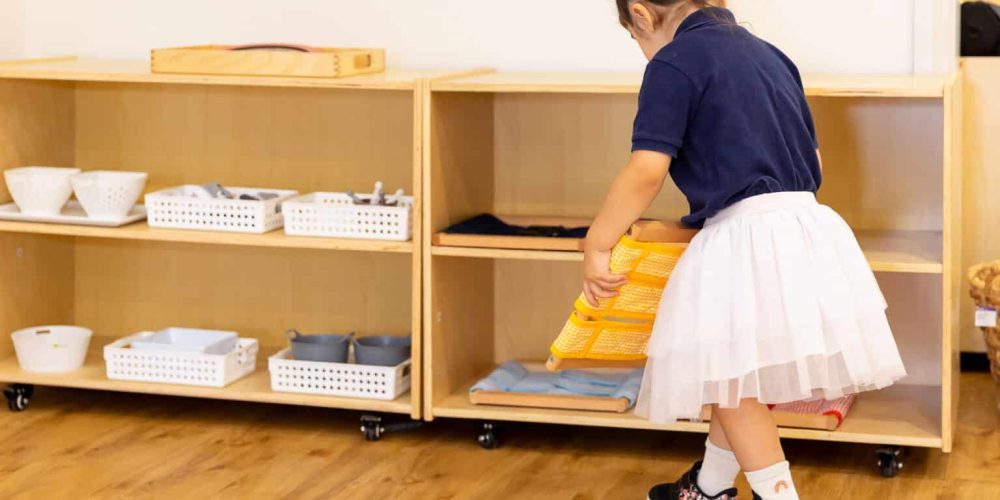
Culture
The Montessori Culture Curriculum covers the study of the arts, geography, science, environment, national culture, music, and history. Through cultural activities children learn about their community and the world. They discover similarities, differences, and develop an understanding, appreciation and respect for diversity and all living things.
Example materials and activities include:
- Land and water globe
- Flag puzzles
- World map puzzle
- Life cycle puzzle
Botany cabinet
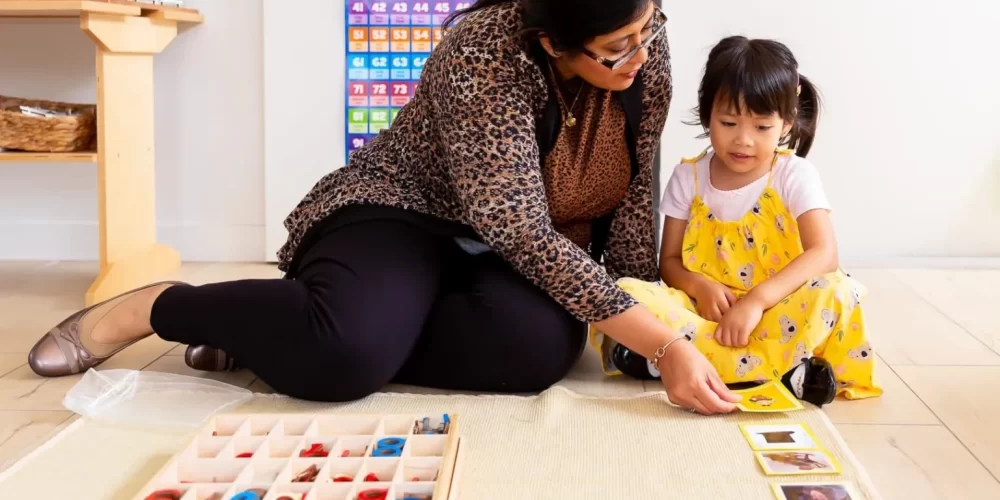
Early Years Learning Framework
In addition the Montessori Curriculum, all Montessori Academy childcare centers also teach the Australian Government’s Early Years Learning Framework (EYLF): Belonging, Being & Becoming. The EYLF incorporates five learning outcomes that work hand-in-hand with the Montessori Curriculum to support children’s learning from birth to age five.
Five Key Outcomes of the EYLF:
Outcome 1: Children have a strong sense of identity
Outcome 2: Children are connected with and contribute to their world
Outcome 3: Children have a strong sense of well-being
Outcome 4: Children are confident and involved learners
Outcome 5: Children are effective communicators
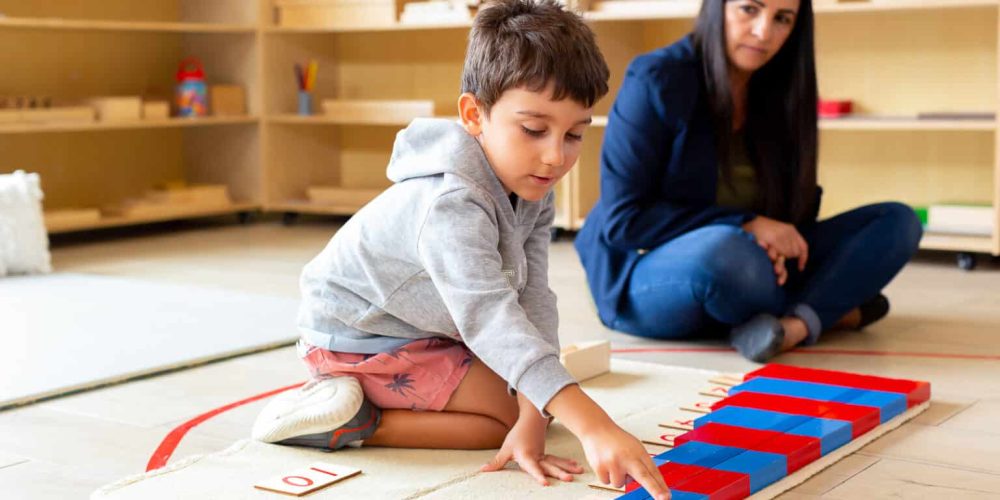
Daily Routine for Toddlers
The daily schedule for toddlers delineates the customary daily rhythm for children aged two to three years within the Montessori toddler community. This routine establishes a reliable sequence of events for learning sessions, meals, naptime, and outdoor play. The consistent nature of the schedule instills a sense of security in children, positively impacting their emotional, cognitive, and social development.
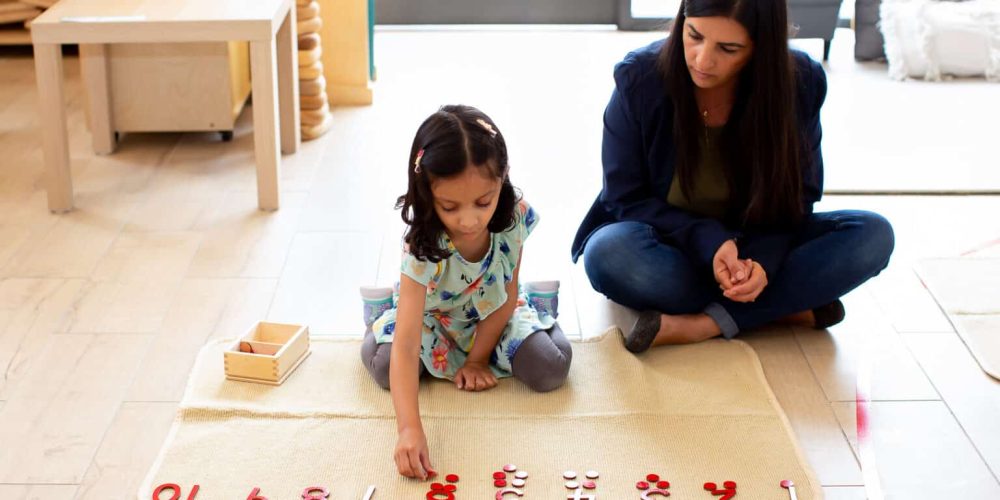
What’s the Next Step? Enter the Preschool Program
Embark on the Montessori Preschool Program, a comprehensive academic and well-being initiative designed to ready children for their upcoming transition to formal schooling. Building upon the foundational knowledge cultivated in earlier programs, it aids in the cultivation of confidence, independence, problem-solving abilities, creativity, and practical life skills.
